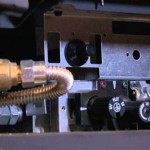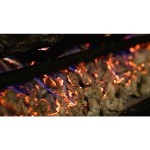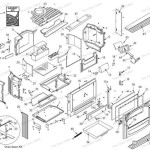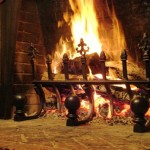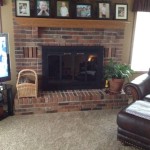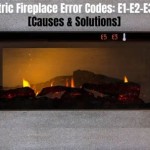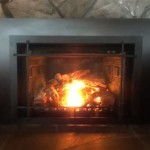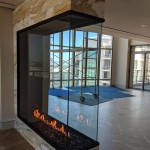Fireproof Materials for Fireplaces: A Comprehensive Guide
Fireplaces, a central element of many homes, provide warmth and ambiance. However, ensuring their safety is paramount. Fireproof material for fireplaces plays a crucial role in preventing dangerous fires and protecting the surrounding area. Here's a comprehensive guide to understanding the essential aspects of fireproof materials for fireplaces:
Types of Fireproof Materials
Various fireproof materials are available for fireplaces, including:
- Sheet Metal: Provides a reliable barrier against flames and heat. It can be used as a liner for the fireplace chamber or as a back panel.
- Ceramic Fiber: A lightweight, insulating material that effectively resists high temperatures.
- Firebricks: Made from refractory clay, firebricks can withstand extreme heat and are commonly used to line the base of fireplaces.
- Fire-Resistant Board: A composite material comprising gypsum, vermiculite, or cement that offers thermal insulation and fire resistance.
Choosing the Right Material
Selecting the appropriate fireproof material depends on factors such as:
- Fireplace Type: Different fireplaces, such as gas, wood-burning, or electric, may require specific materials.
- Heat Exposure: The material should withstand the level of heat generated by the fireplace.
- Cost: Fireproof materials vary in cost, so consider your budget.
- Durability: Choose materials that can endure the rigors of regular fireplace usage.
Installation Considerations
Proper installation is crucial for the effectiveness of fireproof materials. Ensure:
- Secure Attachment: The materials should be securely attached to the fireplace chamber using screws or adhesives.
- Overlapping Coverage: Overlap the materials to prevent gaps or holes that could allow sparks or heat to escape.
- Firewall Extensions: Fireproof materials can be extended beyond the front of the fireplace as a firewall to protect adjacent walls.
Maintenance
Maintain fireproof materials regularly to ensure their integrity:
- Regular Cleaning: Remove ash and debris from the fireplace chamber and fireproof materials.
- Inspections: Periodically inspect the materials for cracks, tears, or damage.
- Repairs: If any damage is identified, promptly repair or replace the affected areas.
Benefits of Fireproof Material
Fireproof materials for fireplaces offer numerous advantages:
- Increased Safety: They prevent fires from spreading from the fireplace to the surrounding area.
- Reduced Heat Loss: Insulating materials help retain heat within the fireplace.
- Protection of Property: They protect walls, floors, and furniture from heat and smoke damage.
- Compliance: Fireproof materials often meet building codes and insurance requirements.
Conclusion
Choosing the right fireproof material for your fireplace is essential for safety and peace of mind. By selecting the appropriate material, installing it correctly, and maintaining it diligently, you can minimize fireplace-related fire risks and enjoy the warmth and comfort of your fireplace for years to come.

Non Combustible Materials Explained Regency

Heat Resistant Materials For Stoves Fireplace Refractory Vitcas

Dk Studio

Half Round Fireproof Fireplace Mat Hearth Area Rug Fire Flame Resista Grillpartsreplacement Bbq Parts Retailer

Flame Resistant Fiberglass Half Round Hearth Rug 27 X 48 Black Plow

8 Best Materials For Fireplace Surrounds

Freestanding Rustic Fireproof Material Corner Wood Electric Fireplace Mantels With Insert China Mantel Made In Com

Fireplace Mats Fireproof Semicircular Flame Mat Ant High Temperature Resistant Double Layer Fiberglass Silicone For Temu

Tangnade Fireproof Fireplace Hearth Rug Non Slip Protection Mat Flame Resistant Pad Com

Fireproof Mat For Fireplace Hearth Flame Ant Pad Protecting Floors From Sparks Glass Fiber Heat Shield Rug 80x50cm 100x50cm Fruugo No

